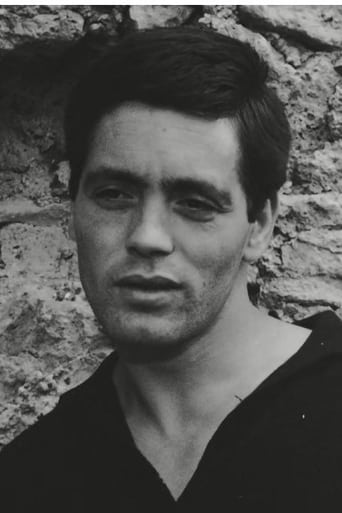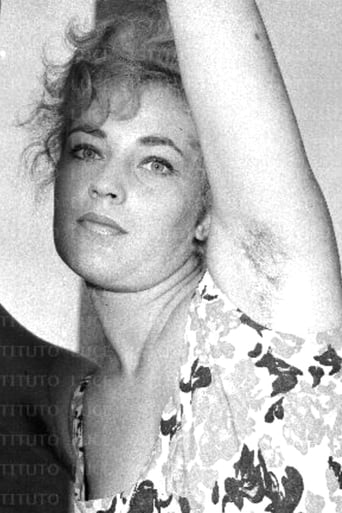Matialth
Good concept, poorly executed.
Spidersecu
Don't Believe the Hype
Curapedi
I cannot think of one single thing that I would change about this film. The acting is incomparable, the directing deft, and the writing poignantly brilliant.
Gary
The movie's not perfect, but it sticks the landing of its message. It was engaging - thrilling at times - and I personally thought it was a great time.
darnthatdream
Basically everyone is so desperate, brutal and cynical in this film. Felt like biteing the bullet.
evening1
Here is a devastating portrayal of a masterful manipulator.Accatone is offended by the idea of work and thinks only "animals" should do labor. So he lives off the prostitution of Maddalena until she gets herself arrested, perhaps in an unconscious bid to escape him.We watch with amazement and contempt as the increasingly hungry Accatone tries to reconcile with Ascenza, who walks with baby in arms. "Believing you was the biggest mistake of my life!" she snarls. Accatone's plying mewling inflames Ascenza's father, who lunges for a knife to finally still him. (To its credit, this highly psychological film, whose cluster of macho bit players is so reminiscent of that in "The Godfather," includes not even one murder.) Accatone, played mesmerizingly by Franco Citti, has left a trail of neglected children across the barren, sun-bleached terrain of a Roman slum. He begrudges one who is playing in the dirt for not acknowledging him -- even as he lifts a chain from the toddler's neck. A man's gotta eat...Out of desperation, Accatone approaches the non-prostitute Stella (Franca Pasut), seemingly the only one in town who doesn't know his reputation. We watch him transform from wishing to feed off, and then be the one who feeds, this compelling woman. It's a very hard life and Accatone doesn't have it in him to continue for long, so it's his suicidal depression that liberates him in the end.I found the film's abrupt ending a little too facile and wished for a more profound conclusion. Yet maybe part of the message here is that life is harsh and then it stops -- no dress rehearsal, no warning. "Accatone" was my introduction to the work of Pasolini and I'm definitely eager to see more.
Sean Reilly
This just might be the greatest movie I've ever seen. There are two key elements here: the first is Pasolini's genius. Martin Scorcese, or however his name is spelt, is, was, and always will be the poor mans poor mans poor mans Pasolini. Pasolini's subtleness, his understanding of human nature... where does one stop? The second incredible element is that Citti is LANGUID CHARISMA personified. I used to think Jimmy Coburn was the king of such effortless charisma, but I've never seen a performance like this in my life. And I believe the cast were all pretty much amateurs also.Bach's genius is used hauntingly, in many ways this provides a link to his movie on Our Lord. This is just too beautiful a movie experience for words. I joined IMDb today solely to comment on what I consider to the worst movie I ever saw, two nights ago, called 'love actually'. Well, Accattone is probably the best.
NYLux
This is still a masterpiece of a film you can not afford not to see if you like Pasolini. "Accattone" is the directorial debut of the Italian neo-realist, Pier Paolo Pasolini, but by a strange coincidence it ended up being the very last of all his movies that I saw. I had seen everything he ever did, including short films by the time I got to "Accatone" and still found it masterful. Franco Citti stars as the title character, he is a handsome pimp in Rome's post-war lower depths, with an endearing face that speaks volumes of his street-wise upbringing in the slums. To those unaccustomed with Southern Italian culture the way he spends his days with the other local pimps, playing cards and being lazy may seem vile, but it is actually a well grounded tradition, as is also his support of the entire family of his imprisoned friend, Ciccio, who depend on him for survival. He is obviously a fellow mobster, and their code of honor is at stake when Accatone discovers that he is in prison as a result of his whore, Maddalena, played by Silvana Corsini, who denounced Ciccio to the authorities. Even though she is recovering from a broken leg, Accatone forces her to go on the streets, where she is used, beaten and abandoned by Accatone's pals after he tells them the story, then she is found by the police and arrested. Accattone nearly starves to death from the total lack of income, he even sells all his jewelry to get by. He tries to reunite with his wife, with whom he has fathered at least one child, but she sees through his seduction act and her virile, beautiful brother beats up Accatone in an intense erotically-charged scene that seems to simulate sexual assault as much as violence between the men. After meeting the innocent and beautiful Stella, (Franca Pasut) he is smitten and tries to get a job, so he can support her and his family but he is not accustomed to hardship and has the lack of patience that is typical of spoilt types that have never been trained to work does not make the job last for very long. Never have I seen a more humane, direct and simple depiction of the tragic life of these undesirables of society. Pasolini is a master painter narrating with a few gestures all their hardship and suffering. Even getting a plate of food in this world is a memorable accomplishment. We see the whole setting as a sideline of modern society's inability to function properly. The 'corrections' by the police seem to be the most unjust of all, and Pasolini presents this panorama of human failing as an allegory of human struggle and spiritual redemption.






